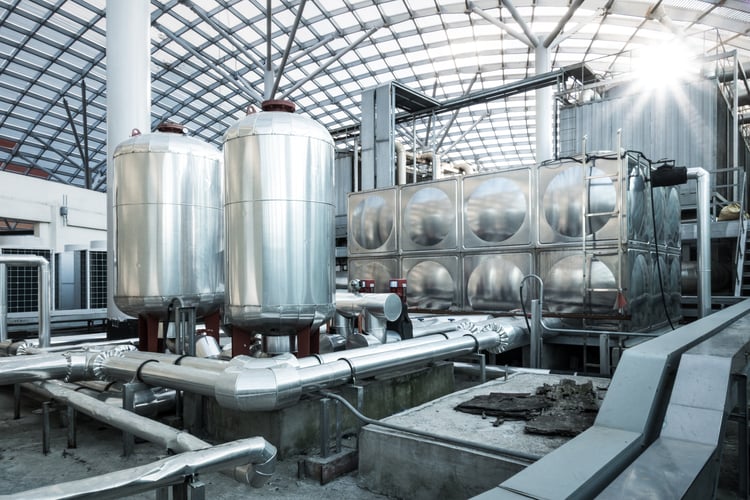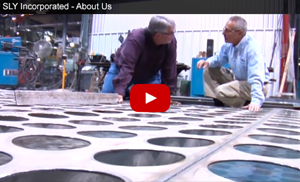The manufacturing of chemicals is a double-edged sword. While it’s essential for producing a wide array of products that benefit society, it also generates hazardous gases that pose significant risks to human health and the environment. In chemical processing plants, where exposure to substances like chlorine, ammonia, and sulfuric acid is part of daily operations, mitigating these risks is not just regulatory—it’s a moral imperative. Enter fiberglass-reinforced plastic (FRP) scrubbers, the unsung heroes that serve as the first line of defense in maintaining air quality and ensuring safety.

FRP Scrubbers: Engineering for a Cleaner Tomorrow
FRP scrubbers are not just pieces of equipment; they are complex systems engineered to contain and neutralize dangerous contaminants before they can cause harm. Their design leverages the innate properties of FRP—a material known for its resistance to a plethora of chemicals, its ability to withstand various temperature ranges without degradation, and its UV resilience.
How FRP Scrubbers Operate
At their core, FRP scrubbers are designed around the principles of gas absorption and neutralization:
- Contaminated Gas Entry: Exhaust streams laden with gas pollutants enter the scrubber.
- Chemical Interaction: Inside the scrubber, these gases come into contact with a specifically formulated scrubbing liquid.
- Neutralization: The liquid absorbs the hazardous gases and initiates a chemical reaction that neutralizes them.
- Clean Release: After this process, what remains is an innocuous gas stream released into the atmosphere—stripped of harmful chemicals—and a contaminated liquid that is subsequently treated.
Customizing for Compliance and Efficiency
One size does not fit all in industrial applications—and this holds true for FRP scrubbers. Customization is crucial to address varying industrial needs effectively. Factors such as gas types present in the exhaust stream, their concentration levels, temperature conditions, pressure requirements, and desired capture efficiency all play into tailoring an FRP scrubber system that fits like a glove.
Sly LLC's expertise lies in creating solutions that are not merely compliant with environmental standards but also optimized for performance—ensuring that plants can operate safely without compromising productivity or safety.
Benefits of Using FRP in Scrubber Systems
FRP brings several advantages to the table when used in scrubber systems:
- Corrosion Resistance: Its nonreactive nature means long-term operation is guaranteed without succumbing to corrosive wear—a common pitfall in chemical processing environments.
- Cost-Effectiveness: Compared to high-grade steel alloys required for similar conditions, FRP is more economical while still providing robust performance against corrosive agents.
- Impressive Capture Efficiency: FRP scrubbers boast high capture rates for both particulate matter and gaseous pollutants—making them effective guardians against contamination.
- Minimal Upkeep: The inherent properties of FRP ensure low maintenance efforts; it does not rust or need repainting, and its surface resists contaminant buildup.
If you want a deeper dive into the function and applications of wet scrubbers, we’ve published a new white paper.
Recognizing Limitations to Forge Better Solutions
Despite their numerous advantages, FRP scrubbers do have limitations:
- Temperature Sensitivity: Standard setups handle up to 220°F—beyond which additional measures may be necessary.
- Pressure Constraints: They typically support up to 1 psig or 27.7 inches of water pressure or vacuum—with modifications required for higher pressures.
- Erosion Risks: When faced with abrasive particles within exhaust streams, erosion could necessitate specialized design considerations.
In addressing these limitations upfront through careful design choices and adaptations, Sly ensures that each FRP scrubber system meets the unique challenges posed by different chemical processing scenarios.
Ensuring Safety Through Innovation
The evolution of chemical processing demands continual innovation in air pollution control methods. Our goal at Sly is to engineer designs and technologies—like FRP scrubbers—to safeguard the environment and the public from industrial hazards. These systems represent more than just engineering triumphs; they embody our commitment to responsible manufacturing practices that honor both human life and environmental stewardship.
Knowing such advanced protection offers peace of mind for those who operate within the realms where hazardous gases loom as unseen threats. And so, as we continue forging ahead in our industrial endeavors, we lean on the silent strength of FRP scrubbers.
Trust Sly LLC to fabricate a dust collection system that improves air quality, maintains plant safety, and delivers cost-effective, durable performance.





